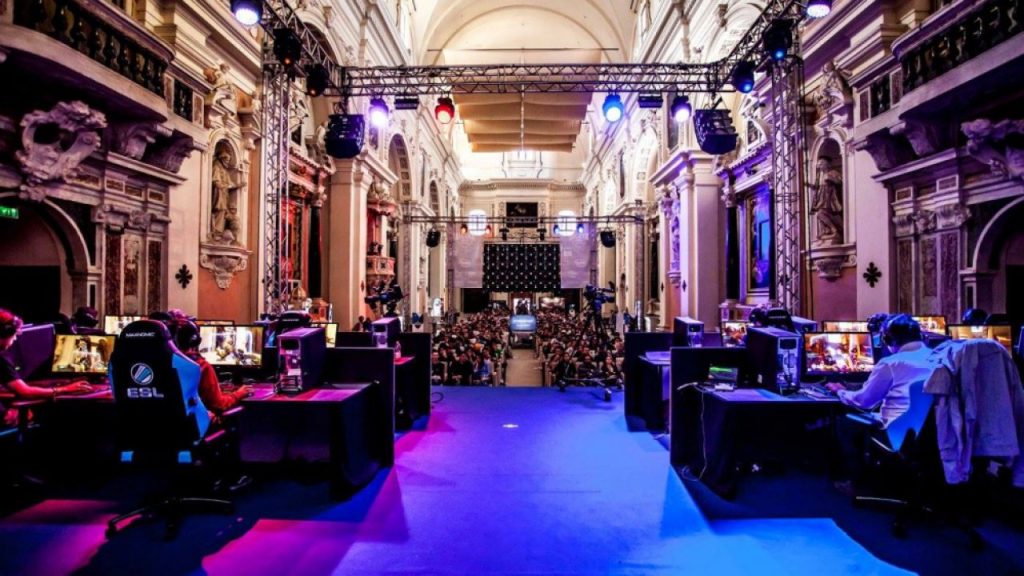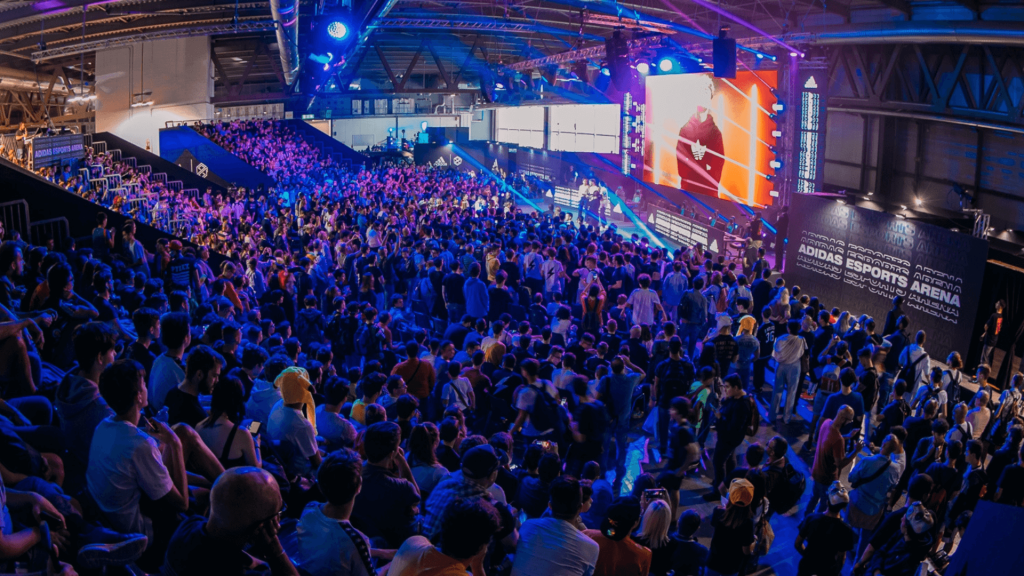
By looking at the packed crowd of a semi-professional League of Legends tournament in Lucca, Italy, one might assume esports is now an integral part of Italy’s culture.
In the Tuscan town, a 15th century church is now an esports arena where fans cheer for an influencer tournament waiting for the Circuito Tormenta finals, a grassroots tournament organised by ProGaming. All seating is occupied and the cheering echoes through the isles of the church.
Take a step outside the venue, and you’ll find Italy’s biggest comic book festival, Lucca Comics and Games — a decades old event that turns the mediaeval town into a sprawling heaven for geeks, nerds and esports fans.
It was a similar story at last year’s Milan Games Week, Italy’s biggest gaming-themed event, which had not one but two esports stages operated by two different companies with overlapping competitions in different titles. During the three days of the fair, it was almost impossible to find any seating to watch some of Italy’s top teams battle it out for their respective national titles.
But when the same final of the League of Legends PG Nationals tournament (who’s top seed qualifies for the EMEA Masters) was held on its own, in a club near Milan’s centre, the venue was half full, and not even remotely as lively or loud. Italy’s esports scene struggles to be an attractive force on its own — yet when fans are already at a venue for another reason, esports attracts them like a magnet.
“Esports in Italy are suffering from the same hurdles as the rest of the world, especially after the COVID-19 bubble after which a lot of investment dried up when everything went back to normal,” prominent Italian esports journalist and analyst Francesco Lombardo explained. “Sponsors are weary of the industry because of its unstable future so there’s less money going around.”
The COVID-19 pandemic gave a boost to esports awareness domestically, and now competitive gaming is talked about in the Italian parliament. There are active measures to economically support the gaming sector in Italy, even very early talks to expand monetary investment from the state into esports.
“Unfortunately these are just talks, nothing concrete has materialised”, Lombardo added, “so the sector is on its own. Live events, though, are not backing down. If you were to go to any gaming and geek fair you could see a packed esports competition. Not only at the bigger ones like Lucca Comics or Milan Games Week but especially at a more local level like at the Naples Comic Con or at the Romics in Rome. There you see sold out venues and esports fans crowding the arenas within those conventions.”
While the esports scene is not very big in Italy, the numbers are large enough to allow for a sustainable scene. The National League of Legends tournament averages around 2000 viewers for matches, while the eSerie A (the esports championship corresponding to Italy’s most important football league) averages around 5000 viewers.

The main problem is the geographic distance between fans and events — and that there’s not much money to go around.
“Partners who do decide to sponsor a LAN Final or a similar event allocate funds based on the expected return on investment, which historically hasn’t been very high,” explained Cecilia Ciocchetti, an Italian esports journalist and Digital Media Manager at Overcome. This lack of funds forces event organisers to either host their event during a larger convention or scale it down to fit within the budget.
“In the latter case, organisers must find an affordable venue that is easily accessible to fans, near public transportation and accommodation options, as well as suitable for all the needs of the broadcast crew. Venues with these criterias are typically located in either Milan or, in exceptional cases, Rome, meaning esports fans residing outside of these major cities must travel to attend events.”
As a result, esports events require commitment from fans willing to invest a considerable amount of money, ranging from at least twenty euros to several hundred, to support their favourite teams in person.
“Many fans, however, opt to not attend, especially since most esports events only offer the audience a chance to watch the finals match, which can also be followed from home through a Twitch livestream,” Ciocchetti continued. “In contrast, events embedded in larger conventions provide additional activities, booths, and unique experiences for attendees, incentivising fans to spend and, as a result, attend esports events.”

Not all hope is lost, though, because in recent months one event managed to break the pattern. “The final match of Italy’s first ever VALORANT national tournament at the Vodafone Arena was packed,” said Lombardo, “and it was a stand alone event. During previous occasions like the ESL Vodafone Championships of Counter Strike Global Offensive hardly a third of the seats of the same venue were occupied.”
The desire to share one’s passion for esports in person is there for Italian fans, as proven by packed events at convention centres. In a country so attached to in-person competitions (just take a look at football), there’s willingness to attend — but not the ability to spend. One solution that the Italian scene has found is bundling a lot of competitions together to justify the expense of the trip.
“What will make esports take off [in Italy] in the next months and years”, concludes Lombardo, “is going to be live events because there, and only there, the full aggregating potential of these competitions is materialised”.
There are limits on how much Italian fans are willing, or able, to spend, yet Italian esports can pack venues, when done right. What’s missing is a willing investor to bring an international major to the country to test whether it’s truly ready to become a European player.

